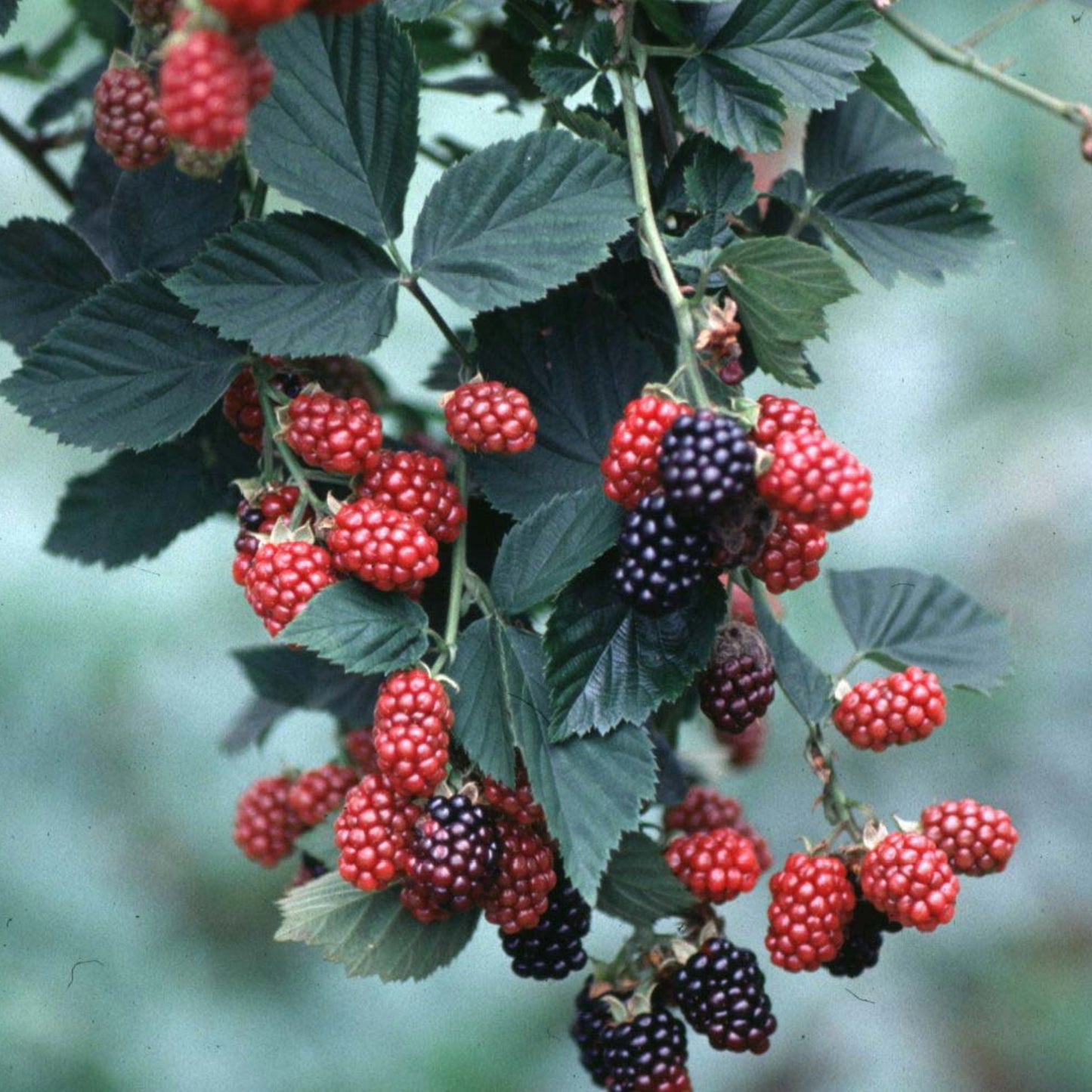Rubus fruticosus 'Chester'
Rubus fruticosus 'Chester' - 'Chester' Blackberry
Rubus fruticosus 'Chester' - 'Chester' Blackberry
Exposure
- Full Sun
Rusticity
Bloom time
- May - June
- Thornless, easy picking!
- Large, sweet berries!
- Abundant late harvest!
- Robust, vigorous plant!
- Versatile for any recipe!
Discover the 'Chester' Blackberry, a popular thornless variety renowned for its generous production and exceptionally high-quality fruit! This vigorous blackberry bush offers an abundance of large, firm, sweet blackberries, perfect for easy picking. Robust and resilient, 'Chester' transforms your garden into a source of summer delights, without the hassle of thorns.
Harvest: Production & Flavours
The 'Chester' Blackberry stands out for its impressive productivity, offering an abundant and late harvest. Its fruits store well after picking, allowing you to enjoy their exquisite flavours for an extended period.
- Harvest Period: August - September
- Visual Description: Large, conical blackberries, glossy black when ripe, very firm and plump.
- Flavour Profile: Sweet and mild, with a refreshing hint of acidity that perfectly balances the taste. The flesh is juicy and melts in your mouth.
- Culinary Uses: Ideal fresh, in pies, jams, jellies, coulis, crumbles, or to garnish your cereals and yogurts. Freezes very well.
Planting Guide
To ensure the success of your 'Chester' blackberry bush, follow these key steps:
- Ideal Location: Plant your 'Chester' in full sun for maximum fruiting and sweeter berries. Support, such as a trellis or espalier, is recommended for its long canes.
- Soil Preparation: This blackberry bush prefers well-drained soil, rich in organic matter, and slightly acidic to neutral (pH 5.5 to 7.0). Generously amend with compost or well-rotted manure.
- Planting: Dig a hole twice as wide as the root ball and just as deep. Position the plant so the top of the root ball is level with the soil surface. Fill with your amended soil mix and gently tamp down. Space plants approximately 1.5 to 2.5 metres (5 to 8 feet) apart to allow for good spread.
- Pollination:
- Type: Self-fertile; 'Chester' does not require another blackberry bush to produce fruit.
- Suggested Partners: No partner is necessary, but the presence of other blackberry varieties can sometimes slightly improve production.
Care Guide
- Watering: Keep the soil consistently moist, especially during fruit formation and ripening. Regular and deep watering is important, particularly during dry periods.
- Fertilization: In early spring, apply a balanced fertilizer or one specific to small fruits. Avoid fertilizers too high in nitrogen, which would promote foliage at the expense of fruit.
- Pruning: Prune in late winter or early spring. Remove all canes that produced fruit the previous year (they will not produce again). Thin out new canes to keep the strongest 6 to 8 per plant, tying them to your support.
- Protection:
- Against Birds: Blackberries are highly appealing to birds; bird netting may be necessary as harvest approaches.
- Winter Protection: 'Chester' is relatively hardy (Zone 4), but in colder regions of Quebec, a thick layer of mulch at the base and/or protecting the canes (e.g., laying them on the ground and covering them) can be beneficial to ensure a good harvest the following year.
Plant details
Dimensions
Dimensions
Characteristics
Characteristics
Habit:
- Upright
Flowering colours:
- White
- Slightly Pink
Plant needs
Plant needs
Watering:
- Regular
- Moist Soil
Maintenance:
- Easy
Soil requirement:
- Well-Drained
- Rich in Organic Matter
- Slightly Acidic to Neutral
Features
Features
Resistance:
- Common Blackberry Diseases
Attract:
- Birds
- Butterflies
- Pollinators
- Bees
Use:
- Mass Planting
- Edible Garden
- Fruit Hedge
- Trellis
- Pots and Containers
Attribute:
- Edible Fruits
- Thornless
- Very Productive
- Good Fruit Storage










